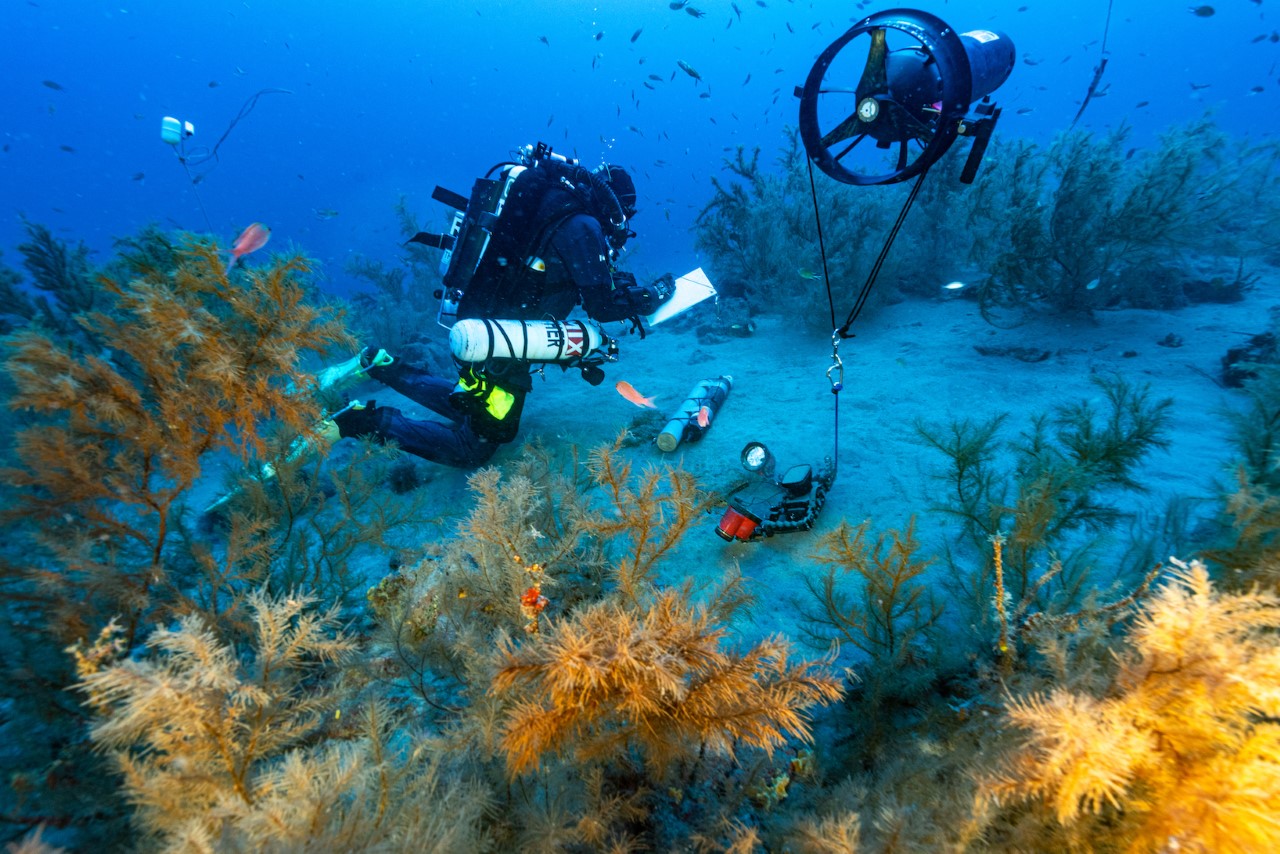During this week the research campaign by the University Institute ECOAQUA of the University of Las Palmas de Gran Canaria continues
The DEEP LIFE research campaign on the black corals of "Playa Chica", an area declared this year as Kilometer Zero of the World's Black Coral Forests of the Global Biological Corridor, continues apace.
A French national television team will report this weekend about the development of the campaign, while the experts of the international consortium, led by the UNDER THE POLE team in collaboration with the Centre National de la Recherche Scientifique (CNRS - France), and the Institute of Sustainable Aquaculture and Marine Ecosystems (ECOAQUA) of the University of Las Palmas de Gran Canaria (ULPGC), continue with the experiments and data collection.
The University Institute ECOAQUA of the ULPGC confirms the excellent nature of these corals and says that "our French colleagues are impressed by the wealth, the good state of conservation and specially the scale of the black coral forests of Playa Chica compared to other areas of Europe where they have been studied".
 Authors: Lorenzo Bramanti and Erwan Marivint
Authors: Lorenzo Bramanti and Erwan Marivint
For the mayor and the town councillor for the Environment, José Juan Cruz and Carmen Gloria Rodríguez, "it is a fortune for our municipality to have the presence of researchers of the natural environment, to be able to study and protect a habitat in such a good state of conservation as the seabed of Playa Chica and, specially, the black coral forests," said Rodríguez.
The inclusion of the black coral forests of Playa Chica within the "Global Biological Corridor" indicates their importance within an international project that is already present in the five continents and that seeks the creation of a continuous terrestrial and oceanic option of global biodiversity that supports the survival of all species and ecosystems of the planet.
The International Committee of the Global Biological Corridor works and collaborates with national and international personalities and institutions, such as the United Nations Global 500 awards, Dr. Birute Galdikas and Joaquín Araujo, as well as the Princess of Asturias awards, Eudald Carbonell, José María Bermúdez de Castro or the oceanographer Sylvia Earle, Max Bello, champion of the COP25 and COP26 oceans, as well as Odile Rodríguez de la Fuente, daughter of the famous ecologist Félix Rodríguez de la Fuente.
It also has some universities such as the IUSA Institute of Animal Health and Food Safety of the University of Las Palmas de Gran Canaria, the Institute CIBIO (Ibero-American Center of Biodiversity) of the University of Alicante, (BIOECOMAC) Biodiversity, Marine Ecology and Conservation of the University of La Laguna Tenerife, TaCoBi (Taxonomy and Conservation of Biodiversity) Consolidated Research Group of the University of Leon, and international institutions such as the Gran Simio Project, Fernando González Sitges zoologist, International Orangutan Foundation, Philippe Cousteau Foundation, European Bison Reserve of San Cebrián de Muda, the NGO A Forest for Planet Earth, Novia Salcedo Foundation (ECOSOC), also including cities, municipalities or Biosphere Reserves, international museums or former diplomats from different countries.
*Press release written by the Local Government of Tías.


